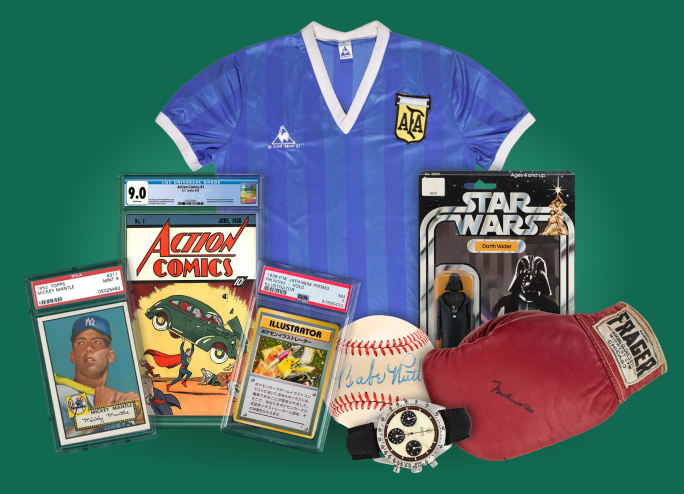Therapy
0
Posts
0
Followers
Therapy
0
Posts
0
Followers
In
collectorsmd
Dec 18 2025
Published December 17, 2025 | By Dayae Kim, LMFT, Collectors MD Referral Network
I say this every year, but I can’t believe another year is coming to an end. Every year holds so much, and yet time feels both fast and blurry. Time can feel strange—the last few months of the year feel clear, but the beginning of the year often feels like a haze. I’ve noticed this same sentiment come up again and again with many of the people I work with.
Recently, I had a session with someone who had been going through a particularly difficult season. When I asked him to reflect on his year, he could only remember the difficulties—the setbacks, the stress, the moments that felt out of his control. His mind, like all of ours when we’re overwhelmed, focused almost exclusively on the pain.
What many people don’t realize is that our brains are wired with a negativity bias. When we’re stressed, anxious, or depressed, our memory becomes selective. It clings to what felt threatening or painful and quietly discards anything that felt neutral or even positive at the time.
Instead of asking him to reflect on the year, we slowed things down. We went month by month. We looked through photos, calendar events, notes, texts, emails, and old conversations—small anchors that reminded him life was still happening, even in the middle of hardship. And through that process, something shifted.
He began to remember not just what went wrong, but what went right. Not just the hard moments, but the meaningful ones. Not just the stress, but the strength it took to keep going.
It was a reminder—for both of us—that negativity bias doesn’t just shape how we feel in the present. It shapes how we remember the past. And when we don’t slow down and look carefully, we risk forgetting our own progress, resilience, and growth.
This is often the moment when pause becomes possible—when we stop rushing forward long enough to actually notice what we’ve carried and what we’ve survived.
As the year comes to a close, I want to invite you to try a different kind of reflection—one that isn’t about judging your productivity or measuring your worth.
Instead, try reflecting through the lens of compassion.
What surprised you?
What softened you?
What challenged you in a way that helped you grow?
What did you learn about your needs, your capacity, and your relationships?
What did you let go of?
What have you been carrying that you may finally be ready to set down?
If it helps, go month by month. Let photos, messages, and memories remind you of moments that didn’t feel important at the time—but mattered more than you realized.
This applies to collecting, too. Many collectors look back on a year and only remember the losses, the money spent, the cards they wish they hadn’t chased, or the moments they felt out of control. Negativity bias can make an entire year feel like a failure when it wasn’t. When we slow down, we often see something different: moments of restraint, lessons learned, connections made, boundaries tested, and growth that didn’t feel dramatic—but was real.
Let this reflection be a gentle reminder that your story is bigger than any one purchase, any one mistake, any one month, or any one season. Growth doesn’t always announce itself loudly. Sometimes it shows up quietly, in the pauses you didn’t used to take and the choices you didn’t used to see.
If you’re ready to enter the new year with more grounding, insight, and emotional balance, you're always welcome to schedule a consultation with me.
#CollectorsMD
Compassion changes the way we remember—and remembering differently changes the way we move forward.
—
Follow us on Instagram: @collectorsmd
Subscribe to our Newsletter & Support Group
Join The Conversation On Mantel
Read More Daily Reflections
In
collectorsmd
Nov 14 2025
Edited
We’re re-uploading every episode of our podcasts—one per day—to make sure our new members and followers can catch up from the beginning.
If you’re new to Collectors MD, these conversations are where it all started—honest, unfiltered discussions about the realities of collecting, recovery, and rebuilding a healthier hobby.
We’ll be sharing episodes from The Collector’s Compass & Behind The Breaks covering everything from gambling parallels in collecting, to mental health, to how we find purpose beyond the chase.
Whether you’ve been here since day one or just joined the movement, this is your chance to revisit the stories that shaped our mission.
Subscribe on YouTube, follow along daily, like, comment, and help us spread the message: the hobby gets healthier when we do.
Collect With Intention. Not Compulsion.
The Collector's Compass #6: The Bridge Between Mental Health & The Hobby
#CollectorsMD | #RipResponsibly | #CollectResponsibly
In
collectorsmd
Nov 12 2025
Edited
We’re re-uploading every episode of our podcasts—one per day—to make sure our new members and followers can catch up from the beginning.
If you’re new to Collectors MD, these conversations are where it all started—honest, unfiltered discussions about the realities of collecting, recovery, and rebuilding a healthier hobby.
We’ll be sharing episodes from The Collector’s Compass & Behind The Breaks covering everything from gambling parallels in collecting, to mental health, to how we find purpose beyond the chase.
Whether you’ve been here since day one or just joined the movement, this is your chance to revisit the stories that shaped our mission.
Subscribe on YouTube, follow along daily, like, comment, and help us spread the message: the hobby gets healthier when we do.
Collect With Intention. Not Compulsion.
The Collector's Compass #5: What Therapy Can Teach Collectors To Avoid Hobby Burnout
#CollectorsMD | #RipResponsibly | #CollectResponsibly
In
collectorsmd
Nov 1 2025
Published October 31, 2025 | By Dayae Kim, LMFT, Collectors MD Referral Network
What Is Impulsivity?
WebMD describes impulsivity as a tendency to act without foresight or much thought. Impulsivity is something all of us have experienced at some point.
When I’ve felt burnout from work, I’ve noticed myself engaging in more impulsive behaviors. For me, it often shows up as careless spending or shopping. The cycle usually looks like this: I feel overwhelmed and frustrated from burnout, I go shopping and buy things I don’t need on a whim, and then later, I look at my bank statement and feel anxious and guilty about how much I’ve spent. That guilt and anxiety lead to more stress, and I start the cycle all over again.
Has this happened to you? Maybe it’s not impulsive shopping, but have you ever noticed yourself engaging in any of these behaviors when stressed or anxious?
Angry outbursts
Speaking before thinking
Unsafe or risky actions
Overspending
Gambling
When we’re anxious or stressed, impulsive actions can feel like a quick fix. We might think, “If I just buy this, eat this, or say this, I’ll feel better”. And for a brief moment, it might even seem to work. But shortly after, we’re often left feeling worse because we haven’t actually addressed the root cause of what’s happening underneath.
How Impulsivity Can Be A Symptom, Not The Problem
I’ve been working with a client who has struggled with impulsive gambling. When life and work stressors pile up, he turns to gambling to escape. The temporary rush of excitement numbs the stress, but after acting impulsively, he ends up losing money and feeling even more anxious and defeated.
In our sessions, we’ve worked together to identify his triggers and what his impulsive behaviors look like in real time. More importantly, we’ve practiced delaying his impulsive desires through what I call “thought-breaking activities”. For him, that includes taking a cold shower, going for a run or walk, or turning on his favorite music—loud enough to shift his mood and energy.
These activities don’t erase the stress, but they help him slow down long enough to choose a healthier response instead of reacting irrationally. Over time, he’s learned that managing his impulsivity isn’t about willpower—it’s about awareness, delay, and replacement with something more grounding and appropriate.
Where Collecting Fits In
For many in our community, impulsivity shows up in collecting—especially during moments of stress. A new product drops, a live break starts buzzing, or a rare card appears at a “can’t miss” price, and suddenly the urge feels urgent and justified. The purchase or rip offers a brief lift, but the aftermath—budget strain, shame, or hiding transactions—reinforces the same stress that triggered the behavior. If this sounds familiar, try applying the same thought-breaking approach before you buy: step away for ten minutes, review your budget or want-list, text a trusted friend, or play a song that reliably changes your state. These small pauses create just enough space to return to intentional collecting—choices aligned with your values, limits, and longer-term goals.
Moving Toward Mindful Choices
Impulsivity often gives us the illusion of control—a quick fix to escape discomfort or stress. But these reactions rarely soothe what’s truly underneath. When we learn to pause and observe what’s driving the impulse, we open the door to real change.
Noticing the urge is the first step; choosing differently is the second. Even taking 10 seconds to breathe, walk away, or check in with yourself can interrupt an impulsive cycle and shift your emotional state. With time and support, those pauses add up to more mindful, intentional choices—ones that align with who you actually want to be.
Ready To Break The Cycle?
If you’ve noticed impulsive behaviors showing up when you’re stressed, anxious, or overwhelmed, you’re not alone. These behaviors aren’t signs of weakness—they’re signals that something deeper needs your attention and care.
If you or someone you know struggles with impulsivity or the anxiety that often fuels it, I can help. Together, we can:
Identify triggers and emotional patterns
Strengthen emotional regulation
Build healthier coping tools that support real, lasting change
If you are ready to break the cycle and create a calmer, more intentional way of responding to life’s stressors, you’re always welcome to schedule a consultation with me.
#CollectorsMD
Choose pauses over purchases—let intention lead the next move.
—
Follow us on Instagram: @collectorsmd
Subscribe to our Newsletter & Support Group
Join The Conversation On Mantel
Read More Daily Reflections

Create an account to discover more interesting stories about collectibles, and share your own with other collectors.
In
collectorsmd
Oct 30 2025
Edited
Gambling-Specialized Care: relapse prevention, urges/trigger planning, and recovery stabilization for casino, sports betting, online gambling, and gambling-like behaviors.
Evidence-Based Modalities: Motivational Interviewing, CBT, DBT-informed skills, and trauma-informed work.
Whole-Life Repair: rebuilding financial health, repairing relationship trust, restoring self-worth and identity beyond the gamble, and reconnecting to purpose and community.
In Kevin’s words:
“I’ve walked through the darkness of addiction and know how isolating it feels. The truth is—you can break free. We’ll do it one honest step at a time.”
Earlier this year, Kevin was our first guest on The Collector’s Compass, where we unpacked the psychology of gambling, how it overlaps with hobby behaviors, and practical ways to recognize warning signs before compulsion takes control.
Availability & Access:
Licensed Counseling: New Jersey (primary practice).
Referral Network Support: Intro 1:1 conversations for Collectors MD members nationwide, with warm hand-offs to appropriate care.
How To Connect: Visit our Get Help page on Collectors MD to request a confidential introduction to Kevin.
Collect With Intention. Heal With Support.
#CollectorsMD | #Therapy | #HobbyHealth | #RipResponsibly | #CollectResponsibly
Contact Kevin: cardcounselor@hotmail.com, @kjk92_
Watch Episode #1 of The Collector’s Compass
Follow Collectors MD On Instagram
Join Our Weekly Support Group
Join The Conversation On Mantel
For more information or to connect with a trusted professional through Collectors MD’s growing network, visit collectorsmd.com/resources.


